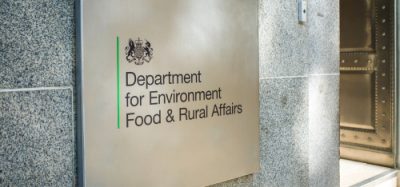Food policy changes could reduce global emissions, says report
- Like
- Digg
- Del
- Tumblr
- VKontakte
- Buffer
- Love This
- Odnoklassniki
- Meneame
- Blogger
- Amazon
- Yahoo Mail
- Gmail
- AOL
- Newsvine
- HackerNews
- Evernote
- MySpace
- Mail.ru
- Viadeo
- Line
- Comments
- Yummly
- SMS
- Viber
- Telegram
- Subscribe
- Skype
- Facebook Messenger
- Kakao
- LiveJournal
- Yammer
- Edgar
- Fintel
- Mix
- Instapaper
- Copy Link
Posted: 3 September 2020 | Sam Mehmet (New Food) | No comments yet
The report, published by WWF, UNEP, EAT and Climate Focus, suggests 16 ways policymakers could take more action to reduce greenhouse gas emissions related to food production and consumption.


Policymakers can improve the chances of achieving climate goals and limiting global warming to 1.5oC by making more specific commitments to transforming national food systems, according to a new report published by WWF, the UN Environment Programme (UNEP), EAT and Climate Focus. The report, Enhancing Nationally Determined Contributions (NDCs) for Food Systems, found that countries are missing significant opportunities to reduce greenhouse gas emissions and identified 16 ways policymakers could take more action, from farm to fork.
The report suggested that by adding food loss and food waste reduction to national climate plans, policymakers can improve their mitigation and adaptation contributions from food systems, by as much as 25 percent.
Food systems account for up to 37 percent of all greenhouse gas emissions, and the report highlighted that continuing on a business-as-usual trajectory will single-handedly exhaust the 1.5oC compatible emissions budgets for all sectors. Although 89 percent of NDCs mention agriculture production, agriculture emissions reduction targets are mainly included in wider land-use targets, according to the report. It also noted that other actions in the food system, such as reducing food loss and waste, or shifting to more sustainable diets, are “widely ignored”.
“Ambitious, time-bound and measurable commitments to food systems transformation are needed if we are to achieve a 1.5oC future. Failing to do so is ignoring one of the main drivers of today’s climate crisis. Without action on how we produce and consume food, we cannot achieve our climate or biodiversity goals, which are the foundation to achieve food security, prevent the emergence of diseases and ultimately deliver the Sustainable Development Goals. That’s why we urge Governments to include climate and nature positive food systems approaches in revised and more ambitious NDCs submitted this year,” said Marco Lambertini, Director General, WWF-International.
“The pandemic has exposed the fragility of our food supply systems, from complex value chains to impacts on our ecosystems. But it has also demonstrated that businesses and people are ready to build back better. This crisis offers us a chance to radically rethink how we produce and consume food. For example, reorienting consumption by halving food waste and catalysing a shift towards more plant-rich diets, is also a powerful climate mitigation tool to take advantage of. It is up to us to seize this opportunity and put sustainable food systems at the heart of the green recovery,” added Inger Andersen, Executive Director of UNEP.
Other findings from the report include:
- Reducing land-use change and conversion of natural habitats could reduce emissions by 4.6 Gt CO2e per year
- Reducing food loss and waste, which accounts for eight percent of all GHG emissions, could reduce emissions by 4.5 Gt CO2e per year
- Only 11 countries currently mention food loss in their plans and none consider food waste
- Improving production methods and reducing methane emissions from livestock could reduce emissions by up to 1.44 Gt CO2e per year, but much greater reductions could be achieved by shifting to healthier and more sustainable diets with a higher proportion of plant-based than animal-based foods could avoid emissions of up to 8 Gt CO2e each year
- No current national climate plans explicitly discuss more sustainable diets
- Developed countries are less likely than developing countries to provide sector-specific mitigation actions for agriculture in their current climate plans
- Through August 2020, 15 NDC updates and revisions have been submitted and though some feature agriculture, actions are still lacking
- Early indications are that sustainable food consumption and food loss and waste will continue to be ignored in the review process. None of the updates and revisions submitted mention them in their mitigation contributions or policies and measures.
“Food systems are a neglected mitigation opportunity and there is rarely any mitigation opportunity with so many sustainable development benefits. Eliminating excessive meat consumption, improving storage facilities and reducing food waste is good for our health and improves food security. With a check-list and concrete examples of activities and targets, this report provides guidance for policymakers to integrate food systems in their national climate strategies,” said Charlotte Streck, Co-founder and Director, Climate Focus.
Related topics
Environment, Food Waste, Regulation & Legislation, Sustainability
Related organisations
Climate Focus, EAT, UN Environment Programme (UNEP), World Wildlife Fund (WWF)









